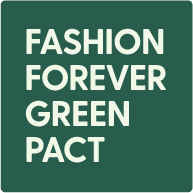The Canopy Style Initiative x FSC’s Promise to Forestry
On this quest to protecting the forest, FSC is far from the only organisation advocating for change. Canopy works globally with the forest’s biggest consumers and their suppliers, developing solutions that protect frontier forests. These efforts start with engaging business executives in transforming unsustainable forest product supply chains, leading a series of company-wide commitments.
Although these unethical supply chains stretch far across various industries, Canopy research has particularly exposed the textile industry as being one of the greatest growing threats. This is because such forests meant to be protected are being used to produce various fabrics such as rayon/viscose, modal, and lyocell. These man-made cellulosic fibres (MMCF) in general are increasingly leading the way in what is supposed to be sustainable textile production. With more than 200 million trees logged every year for cellulosic fabric and only less than 20% of the world’s ancient forests still standing, the damage is forecasted to worsen unless acted upon.
Over 750 of the forest industry’s largest customers have pledged to be added to the list of changemakers with Canopy. As for the fashion industry, in particular, brand partners such as H&M, Stella McCartney, UNIQLO/Fast Retailing, Zara/Inditex, and others have united in forest conservation. While it is seemingly simple to list these changemakers, signing a commitment letter and promoting involvement is only a small piece of each of these brands’ promises to the forest.
Every committing brand and forest product buyer with corporate sustainability objectives must follow a series of protocols to ensure a secure supply chain. This includes a product’s lifecycle from production to its end-user. This is especially true across both Canopy and FSC’s efforts to transform pre and post-production systems to be more ethically and ecologically responsible. The purchase of certified forest products or the association of involvement is key to a sustainability portfolio, offering consumers and the forest assurance of responsible harvesting.
FSC and Canopy’s efforts harmoniously aid in ensuring every point in a signatory’s commitment is secure and that they are held accountable. Upon signing the commitment letter, entities agree to join FSC and the Canopy Style Initiative in certifying their textile supply chains. Each signature is another step on the certification roadmap to reduce the risks of sourcing from Ancient and Endangered forests. Both brands and manufacturers can make a difference–brands to ensure labeling of products and manufactures to commit to the FSC Chain of Custody (CoC).
Together, Canopy and FSC are indeed viable solutions to all change-seekers in the textile industry. The modern day’s competitive marketplace is another contributing factor to brands’ desire to become more proactive and transparently ethical.
Learn more about becoming a signatory of the Fashion Forever Green Pact and how you too can become a change maker
